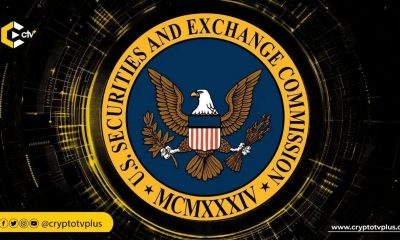News
Ex-CFTC chair believes stablecoins needs more federal regulations; criticizes STABLE Act

The debate over stablecoin regulation in the U.S. is heating up as former Commodity Futures Trading Commission (CFTC) Chair Timothy Massad critiques the STABLE Act, a House bill aimed at establishing a regulatory framework for stablecoins.
Speaking before a subcommittee of the House Financial Services Committee in a hearing, Massad raised concerns about the bill’s approach to oversight and financial stability.
Stablecoins are a type of cryptocurrency designed to maintain a stable value by being pegged to a reserve asset, such as the U.S. dollar, euro, or gold. They aim to combine the benefits of digital currencies—like fast transactions and low fees—with the stability of traditional assets.
The STABLE Act, short for Stablecoin Tethering and Bank Licensing Enforcement Act, is a proposed U.S. law aimed at regulating stablecoins by holding their issuers to the same standards as traditional banks.
The legislation seeks to ensure that companies issuing stablecoins operate under strict federal oversight to protect consumers, prevent financial instability, and reduce the risk of illicit activities such as money laundering.
Under this act, stablecoin issuers would be required to obtain a federal banking license, receive approval from regulators before launching new stablecoins, and maintain sufficient reserves to back their digital currencies.
The proposed framework would bring stablecoins under the supervision of federal banking agencies, making them subject to capital and reserve requirements similar to those imposed on banks.
One of Massad’s main criticisms of the STABLE Act is its reliance on state regulators for stablecoin oversight. The bill, along with the Senate’s GENIUS Act, grants state agencies more control over stablecoin issuers than he believes is appropriate. He argues that stablecoins need federal supervision to ensure uniform standards and consumer protection.
Massad pointed to a bipartisan agreement last year that would have required stablecoin issuers to register with the Federal Reserve while allowing public input on the process. He sees this as a better approach than giving states primary regulatory power, which could lead to inconsistencies and increased risks for consumers.
He also warns that ordinary consumers are unlikely to conduct thorough research before choosing a stablecoin. If states set different rules, some stablecoins could become riskier than others, creating an uneven market.
While proponents of state-led regulation argue that strict requirements on reserves and reporting will ensure stability, Massad counters that too much rigidity prevents regulators from adapting to new industry developments.
Another major issue Massad raised is the bill’s lack of strong financial stability protections. The current legislation allows federal regulators to intervene in a crisis, but only after giving five days’ notice. He argues that this delay is unacceptable in fast-moving digital markets, where a stablecoin collapse could trigger broader financial instability.
Massad also warns that the STABLE Act could lead to a flood of lawsuits. The bill restricts how regulators can enforce rules, requiring them to tailor risk management requirements for different types of stablecoins.
While this limits regulatory overreach, it also creates opportunities for fintech companies to challenge oversight in court. This, he argues, undermines the bill’s goal of providing regulatory clarity.
The former chief also complained that it does not explicitly ban stablecoin issuers from paying interest. In most jurisdictions, including the European Union, interest payments on stablecoins are not allowed, as they would classify them as securities. However, the STABLE Act allows interest payments without triggering securities laws.
Massad warns that this could transform stablecoins into investment products rather than just payment mechanisms. He fears that if states have authority over stablecoin issuers, they could create financial products similar to money market funds but with weaker federal oversight.
Massad warns that the STABLE Act fails to address the bankruptcy risks of stablecoin issuers, particularly regarding repurchase agreements (repos).
In a crisis, an issuer might pledge most of its reserves to secure liquidity, but if news of financial trouble spreads, customers could panic and withdraw funds. Since repo agreements allow creditors to seize assets even in bankruptcy, stablecoin holders could lose everything.
He also advocates for stricter anti-money laundering (AML) rules, including oversight of self-hosted wallets. While Republicans argue that self-hosted wallets protect financial privacy, Massad fears they could enable illicit activities if left unregulated.
























